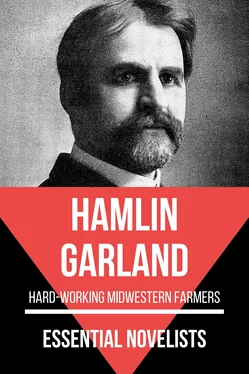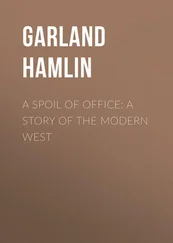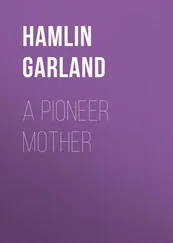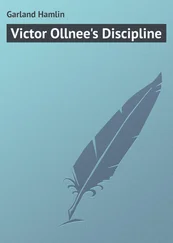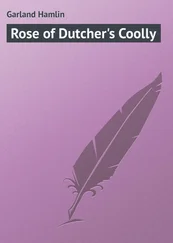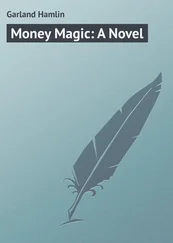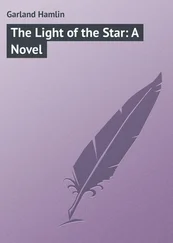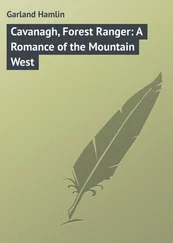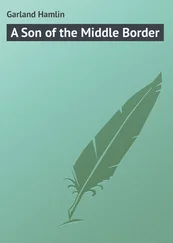Nature was our compensation. As I look back upon it, I perceive transcendent sunsets, and a mighty sweep of golden grain beneath a sea of crimson clouds. The light and song and motion of the prairie return to me. I hear again the shrill, myriad-voiced choir of leaping insects whose wings flash fire amid the glorified stubble. The wind wanders by, lifting my torn hat-rim. The locusts rise in clouds before my weary feet. The prairie hen soars out of the unreaped barley and drops into the sheltering deeps of the tangled oats, green as emerald. The lone quail pipes in the hazel thicket, and far up the road the cow-bell's steady clang tells of the homecoming herd.
Even in our hours of toil, and through the sultry skies, the sacred light of beauty broke; worn and grimed as we were, we still could fall a-dream before the marvel of a golden earth beneath a crimson sky.
We Move to Town
One day, soon after the death of my sister Harriet, my father came home from a meeting of the Grange with a message which shook our home with the force of an earth-quake. The officers of the order had asked him to become the official grain-buyer for the county, and he had agreed to do it. "I am to take charge of the new elevator which is just being completed in Osage," he said.
The effect of this announcement was far-reaching. First of all it put an end not merely to our further pioneering but, (as the plan developed) promised to translate us from the farm to a new and shining world, a town world where circuses, baseball games and county fairs were events of almost daily occurrence. It awed while it delighted us for we felt vaguely our father's perturbation.
For the first time since leaving Boston, some thirty years before, Dick Garland began to dream of making a living at something less backbreaking than tilling the soil. It was to him a most abrupt and startling departure from the fixed plan of his life, and I dimly understood even then that he came to this decision only after long and troubled reflection. Mother as usual sat in silence. If she showed exultation, I do not recall the fashion of it.
Father assumed his new duties in June and during all that summer and autumn, drove away immediately after breakfast each morning, to the elevator some six miles away, leaving me in full charge of the farm and its tools. All his orders to the hired men were executed through me. On me fell the supervision of their action, always with an eye to his general oversight. I never forgot that fact. He possessed the eye of an eagle. His uncanny powers of observation kept me terrified. He could detect at a glance the slightest blunder or wrong doing in my day's activities. Every afternoon, about sunset he came whirling into the yard, his team flecked with foam, his big gray eyes flashing from side to side, and if any tool was out of place or broken, he discovered it at once, and his reproof was never a cause of laughter to me or my brother.
As harvest came on he took command in the field, for most of the harvest help that year were rough, hardy wanderers from the south, nomads who had followed the line of ripening wheat from Missouri northward, and were not the most profitable companions for boys of fifteen. They reached our neighborhood in July, arriving like a flight of alien unclean birds, and vanished into the north in September as mysteriously as they had appeared. A few of them had been soldiers, others were the errant sons of the poor farmers and rough mechanics of older States, migrating for the adventure of it. One of them gave his name as "Harry Lee," others were known by such names as "Big Ed" or "Shorty." Some carried valises, others had nothing but small bundles containing a clean shirt and a few socks.
They all had the most appalling yet darkly romantic conception of women. A "girl" was the most desired thing in the world, a prize to be worked for, sought for and enjoyed without remorse. She had no soul. The maid who yielded to temptation deserved no pity, no consideration, no aid. Her sufferings were amusing, her diseases a joke, her future of no account. From these men Burton and I acquired a desolating fund of information concerning South Clark Street in Chicago, and the river front in St. Louis. Their talk did not allure, it mostly shocked and horrified us. We had not known that such cruelty, such baseness was in the world and it stood away in such violent opposition to the teaching of our fathers and uncles that it did not corrupt us. That man, the stronger animal, owed chivalry and care to woman, had been deeply grounded in our concept of life, and we shrank from these vile stories as from something disloyal to our mothers and sisters.
To those who think of the farm as a sweetly ideal place in which to bring up a boy, all this may be disturbing—but the truth is, low-minded men are low-minded everywhere, and farm hands are often creatures with enormous appetites and small remorse, men on whom the beauty of nature has very little effect.
To most of our harvest hands that year Saturday night meant a visit to town and a drunken spree, and they did not hesitate to say so in the presence of Burton and myself. Some of them did not hesitate to say anything in our presence. After a hard week's work we all felt that a trip to town was only a fair reward.
Saturday night in town! How it all comes back to me! I am a timid visitor in the little frontier village. It is sunset. A whiskey-crazed farmhand is walking bare footed up and down the middle of the road defying the world.—From a corner of the street I watch with tense interest another lithe, pock-marked bully menacing with cat-like action, a cowering young farmer in a long linen coat. The crowd jeers at him for his cowardice—a burst of shouting is heard. A trampling follows and forth from the door of a saloon bulges a throng of drunken, steaming, reeling, cursing ruffians followed by brave Jim McCarty, the city marshal, with an offender under each hand.—The scene changes to the middle of the street. I am one of a throng surrounding a smooth-handed faker who is selling prize boxes of soap and giving away dollars.—"Now, gentlemen," he says, "if you will hand me a dollar I will give you a sample package of soap to examine, afterwards if you don't want the soap, return it to me, and I'll return your dollar." He repeats this several times, returning the dollars faithfully, then slightly varies his invitation by saying, "so that I can return your dollars."
No one appears to observe this significant change, and as he has hitherto returned the dollars precisely according to promise, he now proceeds to his harvest. Having all his boxes out he abruptly closes the lid of his box and calmly remarks, "I said, 'so that I can return your dollars,' I didn't say I would.—Gentlemen, I have the dollars and you have the experience." He drops into his seat and takes up the reins to drive away. A tall man who has been standing silently beside the wheel of the carriage, snatches the whip from its socket, and lashes the swindler across the face. Red streaks appear on his cheek.—The crowd surges forward. Up from behind leaps a furious little Scotchman who snatches off his right boot and beats the stranger over the head with such fury that he falls from his carriage to the ground.—I rejoice in his punishment, and admire the tall man who led the assault.—The marshal comes, the man is led away, and the crowd smilingly scatters.—
We are on the way home. Only two of my crew are with me. The others are roaring from one drinking place to another, having a "good time." The air is soothingly clean and sweet after the tumult and the reek of the town. Appalled, yet fascinated, I listen to the oft repeated tales of just how Jim McCarty sprang into the saloon and cleaned out the brawling mob. I feel very young, very defenceless, and very sleepy as I listen.—
Читать дальше
